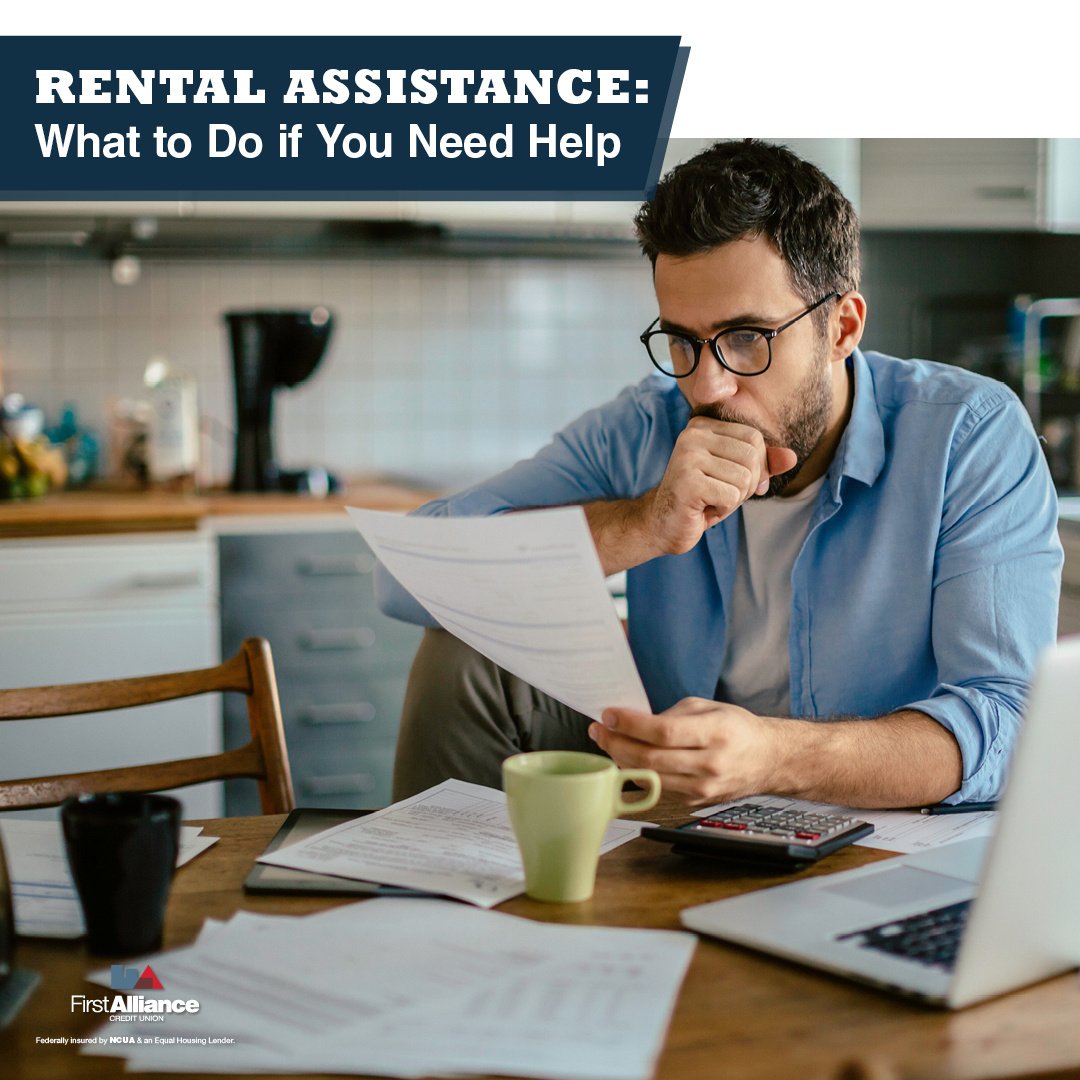6 Steps to Take if You Can’t Pay Your Rent
Nothing is as scary as not being able to pay your rent. For many people, the space they’re renting is their home, and while having to move would be...

Imagine finally saving enough money for your first apartment — you’re excited to decorate, invite friends over, and enjoy a space all your own. Then, suddenly, life throws you a curveball: your car breaks down, your hours get cut at work, or the rent check vanishes into the mysterious void known as “the couch cushions.” Now you’re short on rent, stressed out, and wondering, “Where do I turn for help?” At First Alliance Credit Union, we understand how scary and overwhelming it can feel. We’re here to remind you: You’re not alone, and there are real solutions available — without judgment and without pressure to sign up for something you’re not ready for.

“I’m short on rent for the first time—what are my immediate options for getting help?”
If you’re scrambling to cover next month’s rent, start by looking for emergency rental assistance programs in your community. Many counties offer “urgent rent assistance” or “eviction prevention services,” and they can often help quickly. Nonprofit organizations like Three Rivers Community Action also provide short-term rent relief applications and financial help with housing costs.
“If I receive an eviction notice, can I still find help in time, and where should I go first?”
The short answer is yes, there might still be time. If you’ve already received an eviction notice, reach out immediately to legal aid services or housing authorities (like the Olmsted County Housing and Redevelopment Authority, if you live in Rochester, MN). You can also try negotiating with your landlord — especially if this is the first time you’ve been late.
“Can I negotiate with my landlord if I’m having temporary financial problems, and how do I approach that conversation?”
Absolutely. Landlords prefer open communication to guessing why the rent is late. Politely explain your situation, share a plan for catching up, and ask if they can postpone or split your payment. Even if they say no, being proactive often goes a long way.

“What are the main qualifications for emergency rental assistance, and how do I apply?”
Most government assistance for rent programs have income limits. In other words, you need to be below a certain income level. If you have children, you may qualify for Emergency Assistance (through your county). If you don’t have children, Emergency General Assistance could be your option. Check your county’s website, or contact them directly, to begin your rent relief application.
“What documents will I need to prove my eligibility for rental assistance?”
Generally, you’ll need:
“Are there specific programs for single renters or those with roommates, and what’s different if I have children?”
Yes! Many subsidized housing options — such as Public Housing or a Housing Choice Voucher (formerly called Section 8) — allow single renters or roommates. However, if you have children, you might qualify for additional resources like the Minnesota Family Investment Program (MFIP), which can include a housing grant. Each program’s rules differ, so check with your county’s Housing and Redevelopment Authority or a community action agency.
“How does my credit score affect my chances of qualifying for better rental options—or even assistance?”
Landlords often check credit scores, but rental assistance programs typically focus on income level first. That said, improving your credit score can help you qualify for low-income housing resources more easily or secure a better rental in the future. Simple actions like paying bills on time and keeping credit card balances low can have a big impact over time.

“What’s the difference between short-term rent loans and government assistance programs, and which is better for me?”
Short-Term Rent Loans: These can help fill a short gap, but remember you’ll need to repay them. If you’re working part-time and know you can handle the monthly payment, a short-term loan might be fine.
Government Assistance: Generally, this covers a portion of your rent without requiring repayment. However, the process can take longer and often has specific requirements and waitlists.
“What can I do long-term to avoid future rental crises—especially if I’m just starting out with limited savings?”
Set Up an Emergency Fund: Even a small monthly contribution can cushion unexpected expenses.
Use Credit Wisely: Keep your credit utilization low (under 30%) and pay on time to boost your score gradually.
Stay in Touch With Resources: Know where your local rental assistance programs and low-income housing support offices are. Even if you don’t need them now, you’ll be prepared later.
Work With Trusted Partners: At First Alliance Credit Union, we believe in building relationships, not just offering products. We can help you create a budget plan or explore other supportive options without judging or pressuring you.
If you live in Olmsted County, the OCHRA offers housing choice vouchers, though the waiting list is often closed. Keep your contact info updated so you don’t miss an opportunity once your name is called. Public Housing units through OCHRA require paying about 30% of your income toward rent, and waitlists open periodically for 2-, 3-, and 4-bedroom units. Three Rivers Community Action also supports area residents with homeless prevention and rapid re-housing services.
Remember, You Don’t Have to Do This Alone
Whether you’re 18 years old and renting for the first time or 45 and starting over, facing a rent crisis is nothing to be ashamed of. At First Alliance Credit Union, our mission is to show up for you, listen to your story, and offer genuine possibilities — including advice on how to apply for rent help or rebuild your financial footing. We want to be that helping hand who reminds you that better days are ahead. If you need help, please reach out to local agencies, county offices, or our friendly team. Together, we can get you through this tough spot and on the path to more stable, stress-free living.

Nothing is as scary as not being able to pay your rent. For many people, the space they’re renting is their home, and while having to move would be...

Seeking housing assistance can be a complex, confusing process. Whether dealing with a job loss, reduced hours at work or other unanticipated...

You deserve a safe home and a clear path to build wealth. If housing costs are stretching your paycheck, there are real resources in our area that...